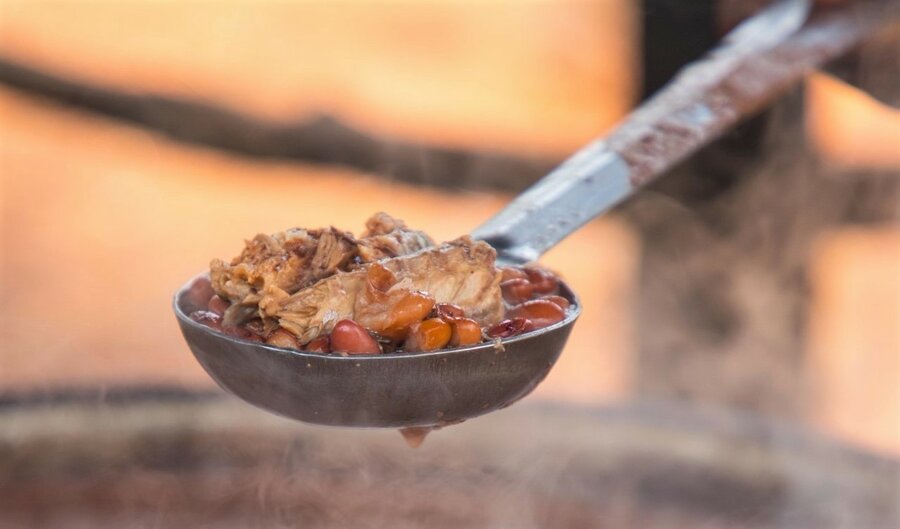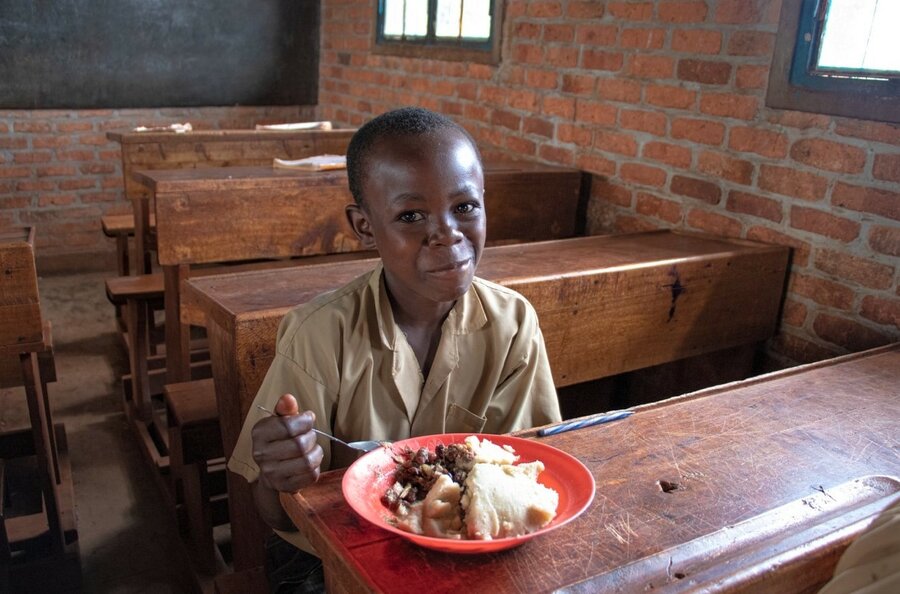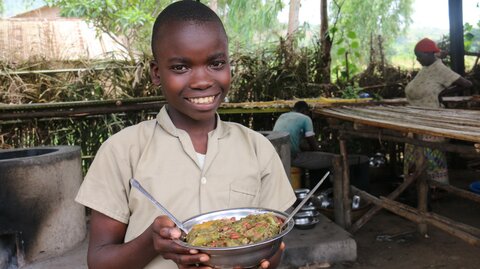Burundi: A contribution of fish from Japan buoys the diets of schoolchildren
“I want to work in finance and ensure that my family has a good life,” says 14-year-old Niyibizi, a student at a primary school in Muyinga province in northern Burundi.
Niyibizi is one of over 500,000 children in more than 700 schools who receive daily school meals which include rice, maize flour, beans, and leafy greens through what is called homegrown school feeding.
This is a form of resilience-building for communities facilitated by the World Food Programme (WFP), empowering communities with the agricultural skills and resources they need to become totally self-reliant – in growing crops they supply schools with the ingredients they need to facilitate a diverse diet for the children.
But not all the food is homegrown – or even plant-based.
Since 2019, the Government of Japan scaled-up assistance supplying schoolchildren with food of a different sort – fish!
High in protein, vitamins, and minerals, the mackerel is a welcome dietary addition for 270,000 children living in the food-insecure regions of Bujumbura, Kirundo and Muyinga.
Malnutrition rates for children aged under-5 for both Kirundo and Muyinga provinces are at 57 percent and 62 percent respectively.
Niyibizi’s parents are smallholder farmers who live 5 kilometres away from his school. One meal per day is the norm in this family and a daily hot lunch is a motivating factor for him to make the long journey to and from school by foot.
“I like the food we eat at school and especially fish with beans,” he says. “If we ate fish every day I would never miss school even if I were sick.”

Amina Niyomukiza is also a student at Gisanze primary school. She wants to finish school, study at university, and eventually work for Government, maybe even in the President’s office, she says.
The youngest of six children, her ambitions are not shared by all the family, however. Three of her siblings have already dropped out of school.

“The first one went to Tanzania to look for a job, the second went to get married and we don’t know where the other one is,” she says.
For rural families like Niyibizi’s and Amina’s – who depend on tiny pieces of land to feed many mouths – maintaining a healthy and balanced diet is a challenge. WFP’s school meals programme promotes access to education through nutrition and helps to break the circle of poverty and malnutrition.
“Mackerel contains proteins which are important for physical and intellectual growth in children,” says Niamkeezoua Kodjo, a nutritionist for WFP in Burundi.

“It’s also rich in omega-3 fatty acids which are essential for brain development and vitamins and minerals which ensure bone growth”.
Last year, the Government of Burundi contributed US$2.5 million to the school meals programme. It has identified school meals as the largest and most important safety net for vulnerable people in the country.
Takayuki Miyashita, Japan’s former ambassador to Burundi, said: “The school meals programme is an invaluable investment for the next generation in Burundi.
School meals: an invaluable investment in Burundi’s next generation

“Food security is one of the main pillars that the Japanese Government focuses on and we are happy to support WFP in achieving this.”
Despite the many challenges faced by school children in this region of Burundi, the Province of Muyinga was ranked second in the results of the 9th grade (15- to 18- year-olds) national exams in 2020. An improvement from eighth and ninth places in the previous two years.
